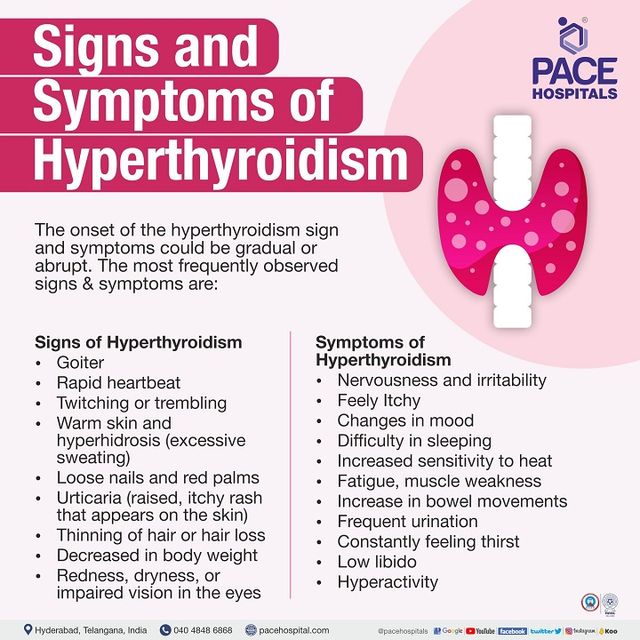Understanding Hyperthyroidism: Symptoms, Causes, and Treatment Explained
– Hyperthyroidism occurs when the thyroid gland produces too much thyroid hormone.
– It can cause symptoms such as weight loss, hand tremors, rapid or irregular heartbeat, increased hunger, nervousness, anxiety, irritability, sweating, changes in menstrual cycles, increased sensitivity to heat, changes in bowel patterns, enlarged thyroid gland, tiredness, muscle weakness, sleep problems, warm and moist skin, thinning skin, and fine, brittle hair.
– Older adults may have symptoms that are hard to notice, including irregular heartbeat, depression, and weakness or tiredness during normal activities.
– It can be difficult to diagnose hyperthyroidism as its symptoms can resemble other health problems.
– If someone experiences symptoms of hyperthyroidism, such as unexplained weight loss, rapid heartbeat, sweating, or swelling at the base of the neck, they should see a doctor.
– Treatment options include anti-thyroid medicines, radioiodine, and surgery to remove part or all of the thyroid gland.
– Regular follow-up visits with a healthcare provider are typically required after a diagnosis of hyperthyroidism.
– The main causes of hyperthyroidism are Graves’ disease, overactive thyroid nodules, and thyroiditis.
– Risk factors for hyperthyroidism include a family history of thyroid disease, certain chronic illnesses, and recent pregnancy.
– Complications of hyperthyroidism include heart problems such as atrial fibrillation and congestive heart failure.
– Brittle bones (osteoporosis) can result from untreated hyperthyroidism.
– Thyroid eye disease is a possible complication of hyperthyroidism, particularly for smokers. Symptoms include bulging eyes, gritty sensation, pressure or pain, puffy or retracted eyelids, red or inflamed eyes, light sensitivity, and double vision.
– Graves’ disease can lead to Graves’ dermopathy, a condition characterized by discolored and swollen skin, usually on the shins and feet.
– Thyrotoxic crisis (or thyroid storm) is a rare but serious condition that can occur with hyperthyroidism. It requires emergency medical care and may present severe, sometimes life-threatening symptoms.
